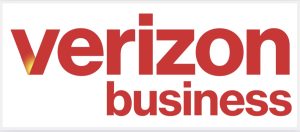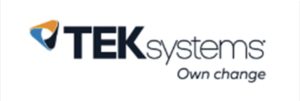Building Strategic Value Through Innovation: Jonathan Jackson on Transforming Procurement at Apex Fintech
In the fast-moving world of financial technology, procurement is no longer just a back-office function, it’s a strategic engine driving efficiency, compliance, and innovation. At Apex Fintech Solutions, Jonathan Jackson has led the transformation of procurement from manual processes to a modern, AI-enhanced function that supports the company’s mission to democratise financial markets.
With a career spanning Fortune 35 firms, NGOs, and now a fintech pioneer, Jonathan shares how Apex is using technology, cross-functional alignment, and supplier collaboration to create lasting impact. In this exclusive interview, he reflects on building agile systems, fostering talent, managing risk in a highly regulated sector, and shaping the future of procurement with purpose.
Click below to access the digital version
Professional Journey: You’re listed as Global Procurement Leader at Apex Fintech Solutions. Can you walk us through your career path and the key milestones that led you to this role?
My career began in Operations at the corporate office of ARAMARK Facilities Services. While leading the department, I found myself regularly meeting with vendors and developing scopes of work. At the time, I didn’t realise it, but I was already starting to dabble in procurement-related tasks.
Eventually, I transitioned into a role within ARAMARK’s Procurement department, focusing on categories related to Facilities and Technology. It was during this period that I began to truly understand the impact that supply chains can have on a company’s ability to serve its customers.
One of the things I love most about procurement is the variety, not only in the day-to-day work but also in the career opportunities it offers. I moved on to a global healthcare NGO, where I was tasked with creating the Procurement department from scratch. This involved everything from drafting policies to managing all procurement activity related to building and operating a health clinic and pharmacy.
From there, I joined Discover Financial Services, where I focused on the Professional Services category. Partnering with multiple internal departments helped me gain a deeper understanding of the business overall, and allowed me to leverage strategic vendor relationships to support new initiatives, generating real value and delivering millions of dollars in savings.
That success led me to a role at a Fortune 35 company, where I led Professional Services engagements across the US, EMEA, and LATAM regions.
Three years ago, I joined Apex Fintech Solutions to build and transform its Procurement department. We still have a long way to go, but I’m incredibly proud of our progress so far, evolving from email-based requests to a full source-to-pay platform, and recently implementing agentic AI within procurement.
Procurement’s Strategic Role at Apex Fintech: How does your procurement function support Apex’s mission to simplify and democratise access to financial markets?
Having worked across companies of different sizes and industries, I’ve seen what procurement looks like at various stages of maturity. For procurement to move beyond being viewed as a roadblock or a purely transactional function, it needs to demonstrate how it creates real value.
At Apex, we’re working hard to become a more strategic partner by aligning our work with some of the company’s core values. The two values we most closely connect with are: “Innovate for Lasting Impact” and “Be Collaborative, Respectful, and Inclusive.”
When I joined Apex, procurement engagement primarily happened via email and Slack. This was inefficient and required manual coordination with multiple departments for contract reviews and approvals. One of the challenges with rapidly evolving technology is knowing when to adopt it and how deeply to go. We took a phased approach, building foundational stability by implementing interconnected systems before advancing to a full Source-to-Pay platform.
We chose ZIP to help us automate workflows and increase transparency. More recently, we’ve implemented ZIP AI Agents, which are helping us automate manual tasks and significantly reduce end-to-end cycle times.
For me, innovation is intrinsically linked to collaboration. Every decision to innovate is ultimately about strengthening partnerships and creating value. When designing new systems, we collaborate closely with internal SMEs to ensure the solutions meet both our needs and theirs. By leveraging technology, we’re freeing up time to focus more on stakeholder engagement and strategic planning.
Someone recently asked me how AI agents will benefit procurement. While procurement is a function, it also represents a multi-departmental process. If these agents can improve user experience, enhance compliance, validate data, and reduce cycle times, then that’s a win, not just for procurement, but for the entire organisation.
Sustainable & Responsible Procurement: What initiatives or criteria has your team implemented to ensure ethical, sustainable, and compliant procurement practices, especially given the highly regulated fintech environment?
When designing procurement workflows and approval processes, we work in close partnership with leaders from Legal, Risk, Data Privacy, Finance, and various technology committees. Every workflow is built with intent, we guide employees through a structured series of questions and data fields designed to identify exactly which departments need to review and approve a request.
Procurement regularly collaborates with these stakeholders to review and update workflows, ensuring we remain aligned with evolving regulatory requirements and organisational policies. This is particularly critical in the context of emerging technologies, especially with the rapid evolution of AI and data privacy regulations.
By embedding compliance and governance into the foundation of our processes, we’re able to maintain control, reduce risk, and uphold ethical and sustainable procurement practices in an increasingly complex and regulated environment.

Supplier Relationship Management: In a market processing millions of transactions daily, what strategies do you use to select, onboard, and maintain strong relationships with suppliers, especially around quality, security, and scalability?
Whether internal or external, building relationships is something I invest significant time and effort into. Transactional relationships might deliver short-term wins, but they rarely support long-term strategic value. Throughout my career, I’ve seen procurement leaders approach vendors with a one-sided mindset, while it might help close a specific deal, it often backfires at renewal time.
I see suppliers as key partners in achieving our business goals. By cultivating strong relationships, I’ve seen vendors proactively support us, flagging issues like potential tariffs or inventory shortages before they become a problem. When we negotiate, we’re not only looking at pricing, we’re also looking for ways the vendor can help us solve broader challenges or add value in other areas.
One of my favourite examples of this comes from the early days of COVID. We had a critical project underway, and the vendor supporting us was facing potential layoffs. We were able to reallocate additional work to them, which helped them avoid staff reductions. In return, they offered us further discounts. That kind of mutual support builds trust, and ultimately leads to better, more resilient partnerships.
Technology Integration & Automation: How have you leveraged procurement technology, such as e‑procurement tools, RPA, or AI, to automate processes, reduce risk, and improve transparency? What systems are you most excited about?
As I touched on earlier, we implemented a Source-to-Pay (S2P) platform called ZIP, which has significantly reduced cycle times and improved transparency across our procurement process. Since adopting ZIP, we’ve reduced average cycle times by over 33%, even compared to our previous Procure-to-Pay system.
One of the key benefits is visibility, requestors can now see exactly where their request sits in real time, along with the remaining approval steps and estimated completion timelines. This level of transparency has had a big impact on stakeholder engagement and satisfaction.
What I’m most excited about right now is the launch of AI agents within ZIP. We recently implemented these agents to handle specific tasks within the procurement workflow, and they’re already helping us improve the user experience, enhance data accuracy, and further reduce cycle times. It’s another important step in our journey toward a smarter, more efficient procurement function.
Risk Management & Cybersecurity: Given the growing importance of cyber resilience in fintech, how does procurement collaborate with cybersecurity stakeholders (e.g., CISO, IT) to vet and manage supplier risk?
Procurement is often associated with cost savings, and while that’s certainly a key way we deliver value, risk and security are even more critical in today’s fintech environment. At Apex, our commitment to these areas is foundational to how we operate.
From the outset, our Risk and Cybersecurity teams were actively involved in designing our procurement tools and processes. They not only contributed to the development of our ZIP platform but also have built-in approval steps within the workflow. In addition, I serve on both the Risk Committee and the AI Committee within the firm, which ensures procurement remains closely aligned with evolving risk frameworks and priorities.
One of the ways we go beyond standard practice is by applying reviews and assessments not just at the vendor level, but at the individual request level, even for renewals. This is increasingly important as software vendors frequently update their terms, particularly around AI and data privacy. Every engagement, no matter how routine it may seem, goes through a rigorous vetting process to ensure ongoing compliance and security.

Agility & Market Response: With global supply chain volatility and rapid fintech evolution, how does your team stay agile and responsive in sourcing key services and technology?
We stay agile by actively networking with industry leaders and partnering with organisations such as Group Purchasing Organisations (GPOs) and market intelligence firms. These relationships help us stay ahead of trends, whether it’s anticipating pricing increases or identifying when companies are moving away from certain vendors in favour of better alternatives.
By working with partners who support procurement teams across a wide range of industries and geographies, we gain access to deep market insights. This broader perspective enables us to respond quickly, make informed decisions, and stay competitive in an environment that’s constantly evolving.
Talent & Team Development: What strategies are in place to develop procurement talent at Apex, through training, certifications, partnerships with educational bodies, or internal mentorship programs?
At Apex, learning and development are deeply valued across the organisation. One of the most exciting initiatives currently underway is our firm-wide effort to become an “AI First” company. This involves equipping all employees with the tools and training to effectively integrate AI into their daily workflows.
Within the Procurement team specifically, we budget for traditional professional development opportunities such as conferences and certifications. But we also take advantage of the capabilities offered by our strategic partners. Several of our key vendors provide customised training resources, including one-on-one coaching and tailored learning programmes. This hybrid approach, combining external partnerships with internal initiatives, helps us build a highly capable, future-ready procurement team.
Future Vision for Procurement: Looking ahead, what are your key objectives for advancing the procurement function at Apex over the next 2–3 years, particularly in areas like innovation, digital fit, and strategic sourcing?
It’s easy to get caught up in chasing the latest technology, but we continue to approach innovation through a focused lens: are we adopting new tools simply because they’re new, or because they genuinely create value and solve real challenges?
Over the next few years, we’ll continue to explore where AI can provide exponential value. AI will be used in partnership with our team, particularly in areas like automation and data validation, so that we can access better insights, faster. This enables the Procurement team to dedicate more time to strategic planning and execution.
Our work spans multiple systems and tools, many of which are owned by other departments. One of our key priorities will be leveraging the data and insights within those systems to drive smarter, faster decision-making. It’s not just about digital transformation for its own sake, it’s about enabling agility and long-term impact across the entire organisation.
In Association with:

Redesign Group is a global technology and cybersecurity firm dedicated to driving digital transformation. The company partners with organizations to design, deploy, and manage tailored strategies across modern data centers, cloud, managed services, and security. With deep expertise, an outcomes-driven approach, and a commitment to excellence, Redesign Group helps clients accelerate growth, reduce risk, and unlock innovation for a smarter, more secure future.

Varisource is a technology buying and management platform that enables organizations to achieve greater cost efficiency across their vendor ecosystem. The company provides access to market data, discounts, rebates, and benchmarking insights across 100+ spend categories, helping procurement teams buy better and manage easier. As a strategic supplier to Apex, Varisource complements the platform’s capabilities by embedding cost-optimization and spend intelligence into the broader supplier lifecycle.

Verizon is a leading American telecommunications company that delivers industry-leading wireless, broadband, fiber, and Internet-of-Things solutions. It connects millions of businesses, consumers, and communities through its robust network and innovative technology. Driven by its purpose—“We power and empower how people live, work and play”—Verizon is committed to reliability, customer-centric innovation, and responsible growth.

TEKsystems is a global leader in talent and technology solutions, partnering with organisations to accelerate transformation and deliver measurable impact. The company provides end-to-end services across consulting, cloud, data, and business operations, helping clients bridge the gap between people and technology. With deep industry expertise and a results-driven approach, TEKsystems empowers businesses to innovate, scale, and achieve their strategic goals.











